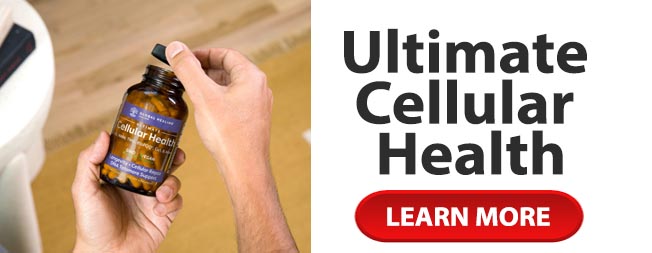Antioxidants are made up of several different substances which help our body to fight free radicals. One of those substances is alpha lipoic acid. Alpha lipoic acid is a fatty acid found inside every cell of the body. It is a required substance to produce energy for normal function. It is also an antioxidant.
It has several factors which make it unique, one of which is that it functions in water and fat. This is very unlike other vitamins which only function in water or fat. For instance, vitamin C is a water soluble vitamin while vitamin E is a fat soluble vitamin.
As an antioxidant, alpha lipoic acid helps to recycle glutathione after it has been used. Glutathione is an antioxidant that helps the body eliminate potentially harmful substances and requires alpha lipoic acid for production and recycling. (1)
For the most part this substance is made by the body but can also be found in very small amounts in foods such as spinach, brussel sprouts, rice bran, broccoli and peas. Supplements manufactured in the laboratory are also available in capsule form at the health food stores, drug stores and online. If you\’re interested in taking the supplement it should be taken on an empty stomach to increase absorption of the product.
People have found several uses for alpha lipoic acid. The first is in the condition of diabetes because it can help to lower blood sugar levels. (2) Because it also helps to kill free radicals, theory holds that it may help to reduce pain, burning, itching and tingling in individuals who have nerve damage which was originally caused by diabetes. It has been used for this purpose in Europe for many years and at least one clinical trial has found that the intravenous use of alpha lipoic acid will help to reduce symptoms. The evidence that taking an orally will help is however, weaker. (3)
In liver disease the substance has been proposed as a treatment for alcohol related problems. However, there is then no evidence so far that this is worked in clinical trials.
Individuals who suffer from peripheral neuropathy, whether caused by injury, nutritional deficiencies, chemotherapy or diabetes, liver disease, alcoholism or thyroid disease, can consider the use of alpha lipoic acid to help with the condition. Preliminary studies using oral administration of the antioxidant has shown that after five weeks individuals who were taking 600 mg doses once daily show improvement. (2)
Alpha lipoic acid crosses the blood brain barrier and has been found to have protective effects on the brain and nerve tissue. At this time it is under clinical trials as a treatment for stroke and other brain disorders which may have triggers of free radical damage. Animal studies have shown that those treated with alpha lipoic acid suffered less brain damage and had four times greater survival rate after a stroke than those who did not receive the supplement. More research is required in order to understand whether this benefit currently applies to people and how it can be exploited to help more individuals who experience a stroke.
At this time there has been some suggestion that the antioxidant will help with cataracts, glaucoma, multiple sclerosis, burning mouth syndrome, Alzheimer\’s disease and to inhibit the growth of the HIV virus. However, at this time there is no evidence to suggest conclusively whether or not it is beneficial in these instances. More research is underway to test the efficacy, efficiency and safety of using alpha lipoic acid in the treatment of these conditions.
There is some potential for side effects and interactions with medications and other dietary supplements which an individual may already be taking. For this reason it is important to share your intention to begin supplementation with alpha lipoic acid with your primary care physician and pharmacists. At this time there is no evidence to determine whether or not it is safe for women who are pregnant or nursing and as such, women should not take the supplement if they are pregnant or nursing an infant. Side effects are generally rare and can include a skin rash. (4)
The antioxidant has been shown to lower blood sugar levels so those who suffer from diabetes should take it only under the supervision of their physician who can help them to adjust their insulin intake to avoid any hypoglycemic episodes. There has been some animal studies which have suggested that people who are deficient in thiamine, vitamin B1, should not take this antioxidant. Individuals who are currently taking thyroid regulating medication should also be monitored closely when they take this antioxidant because they can lower levels of thyroid hormone.
Although alpha lipoic acid is an antioxidant and manufactured normally in the body, it is evident that it does have interactions with other over-the-counter medications and prescription medications which an individual may already be on. Although many people believe that using natural supplementation is perfectly safe, they are still external chemicals being introduced into the body and can therefore create circumstances in which the drug interactions are side effects may interfere with the treatment of any other underlying diseases.
Before taking any medications or supplementation check with your pharmacist to be sure that the supplement does not interfere with the actions of any other prescription or over-the-counter medication you are already taking.
(1) Linus Pauling Institute Oregon State University: Alpha Lipoic Acid
(2) University of Maryland Medical Center: Alpha-Lipoic Acid
(3) Experimental and Clinical Endocrinology and Diabetes:Alpha-lipoic acid in the treatment of diabetic polyneuropathy in Germany: current evidence from clinical trials
(4) Drugs.com: Alpha-Lipoic Acid
RESOURCE
American journal of medicine: Effects of Alpha-Lipoic Acid on Body Weight in Obese Subjects
Free Radical Biology and Medicine: Alpha-Lipoic Acid as a Biological Antioxidant

